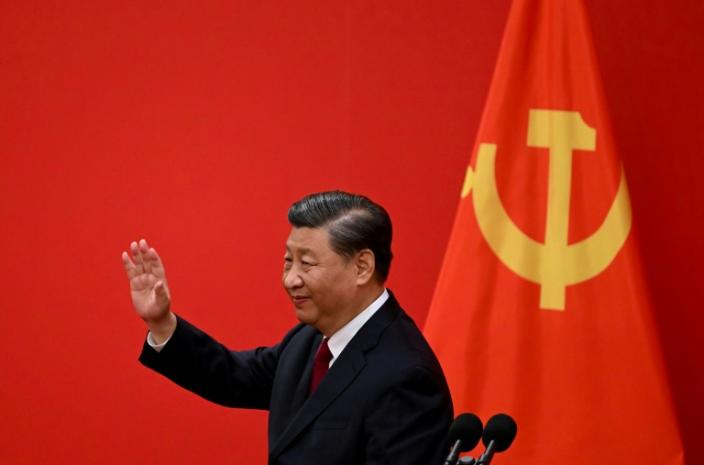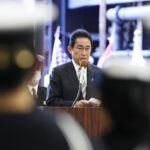
Fresh from securing a historic third term as China’s top leader, President Xi Jinping is poised for a triumphant re-entry to the world stage at a pivotal G20 summit next week.
After almost three years of self-imposed pandemic isolation where international diplomacy was largely conducted via videolink, China now aims to shore up its global alliances — especially with developing countries — in the face of increased competition with the United States and a world environment destabilised by the Ukraine war.
A flurry of state visits to China in the past week have highlighted the importance of maintaining trade and other diplomatic ties — even as China acts more assertively to defend its interests.
German Chancellor Olaf Scholz defied fierce domestic criticism to visit Beijing on Friday with a business delegation in tow, vowing to deepen trade cooperation with China alongside raising contentious issues such as the Ukraine war.
His visit caps off a string of trips by the leaders of Pakistan, Tanzania and the Vietnamese Communist Party — the most numerous face-to-face meetings Xi has conducted since hosting more than a dozen world leaders at February’s Beijing Olympics.
France’s foreign minister last week said President Macron is likely to visit China in the coming months.
– ‘Exuding confidence’ –
At next week’s G20 summit in Bali, Xi will join world leaders including US President Joe Biden, top European Union official Ursula von der Leyen, and the prime ministers of Australia, India, Japan and Britain, among others.
Russian President Vladimir Putin will not be at the conference, where his country’s invasion of Ukraine in February will be one of the main talking points.
Xi’s attendance has not yet been confirmed by the Chinese foreign ministry, which normally announces his travel plans shortly before they happen, but he is widely expected to be present.
“I expect Xi Jinping to arrive at the G20 exuding confidence from the refreshed mandate he has just received from the Communist Party of China,” said Drew Thompson, visiting senior fellow at the National University of Singapore.
Biden on Wednesday appeared to confirm a meeting with Xi on the G20 sidelines, saying that he would gauge Xi’s “red lines” to reduce the potential for conflict after soaring tensions on Taiwan.
Experts are not expecting any breakthroughs on resolving long-term differences, however.
“The political differences between the US and China are deep-seated… A meeting on the margins of a multilateral meeting (is) not the venue to resolve such strategic differences,” said Thompson.
“There is certainly benefit to the engagement, such as better understanding what each side expects from the other, which can hopefully reduce misunderstanding and prevent miscalculation.”
Foreign Minister Wang Yi held his first in-person meeting with US ambassador to China Nicholas Burns last month, after having snubbed him since his arrival in March.
Since November, Wang has also held phone calls with his Australian, Singaporean and French counterparts, suggesting Xi could be holding more high-level bilateral meetings at the G20.
– Rising US tensions –
The US-China relationship further deteriorated this year over Taiwan, a UN human rights report on Xinjiang and US semiconductor export restrictions that aim to curb China’s fledgling chip industry.
At last month’s Communist Party congress, Xi warned of a challenging geopolitical climate without mentioning the US by name, as he wove a narrative of China’s “inevitable” triumph over adversity in a key speech.
“This vision calls for decoupling economic modernity from Western political and social norms and underlying cultural beliefs,” wrote former Australian prime minister Kevin Rudd in Foreign Affairs magazine.
“It offers a new international order anchored in Chinese rather than US geopolitical power.”
Beijing is also not losing sight of its regional backyard, having sent Premier Li Keqiang on a “swan song” visit to Cambodia this week for multiple ASEAN forums.
Xi is also expected to attend the APEC summit in Bangkok shortly after the G20, the Thai foreign minister said last week. Japanese media have also reported a likely meeting between Xi and Japanese Prime Minister Fumio Kishida either at the G20 or APEC.
His packed itinerary will not stop there.
The Wall Street Journal reported that Xi is likely to make a state visit to Saudi Arabia to shore up oil-dependent economic ties, with energy security a pressing focus during the Ukraine war.
lxc/je/aha




